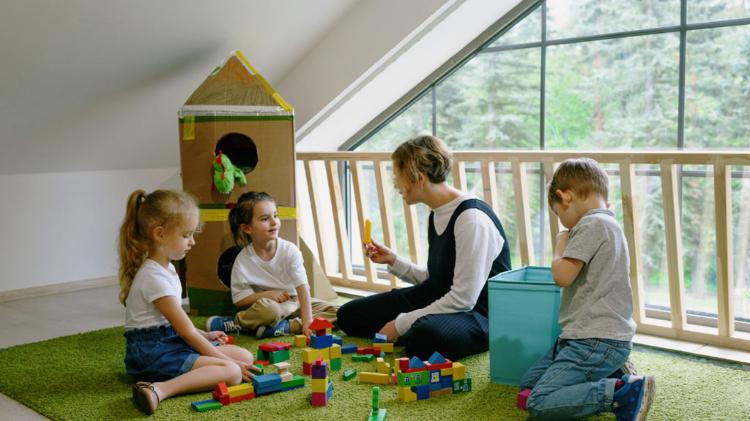Mission:
For Australian Children to be healthy, educated and connected in a digital world.
Centre of Excellence for the Digital Child
Australian Research Council
The Australian Research Council (ARC) Centre of Excellence for the Digital Child meets the ongoing challenge of supporting young children growing up in a rapidly changing digital age.
UOW contributes to all three programs of research including a global first Longitudinal Family Cohort Study that sits across all three research programs:
- Healthy
- Educated
- Connected
UOW is one of six university partner nodes involved in the Digital Child research and is host to the Children’s Technology Play Space.
We refer to digital technology as tools, systems, devices and resources that can generate, create, store or process data. A digital technology usually has some type of processor / microprocessor / microchip for this task and even the simplest digital technologies store some data. Digital technologies refer to devices such as personal computers and tablets, tools such as cameras and digital toys, systems such as software and apps and less tangible technological resources such as the Internet.
Imaginary and non-digital technologies and props used in dramatic play can help children develop knowledge, skills and understanding about digital technologies. For example, using technologies that require an external power source such as light tables, torches and overhead projectors can help demonstrate:
- state (a torch has on and off states)
- systems thinking (a thermometer changes state with changes to the environment)
- and design thinking (what we can do with this information)
Our aim is for children to develop as effective users of digital technologies while at the same time becoming confident developers of digital solutions to a range of scenarios.
Explore the Centre of Excellence for the Digital Child Website
UOW’s Children’s Technology Play Space
The University of Wollongong (UOW) Children’s Technology Play Space is housed within Early Start at UOW (alongside the Discovery Space) and serves as a living laboratory for the Australian Centre for the Digital Child. It offers opportunity for interdisciplinary and intergenerational dialogue as children and their families use technology and engage with expertly designed experiences within the space. The core work of the UOW Children’s Technology Play Space is driven by children, our research projects and connection with industry. As such, the Children’s Technology Play Space serves two main functions:
1) As a technology translation space for the UOW Discovery Space (through regular Digital Playgroups) and
2) as a site for Centre research projects.
During Digital Playgroups, children participate in carefully planned and facilitated experiences where they inform the play and share their expectations, understandings and experiences of how technology works through child-to-child, child-to-adult, child-to-technology interactions.
The Children’s Technology Play Space is distinctly different from children’s everyday places (homes, communities, schools, parks etc). It aims to foster learning through the development of children’s inherent curiosity. It provides a unique space for industry partners to engage with children, families, educators and researchers.
The UOW Children’s Technology Play Space bridges research, technology and children’s everyday practices by enabling a dialogue between and among researchers, children and industry partners. Its engagement with the wider community and Centre partners complements the work of the UOW enterprise (namely, Early Start, Discovery Space and Science Space). It responds to the needs of the community (specifically children, families and educators) with opportunity to connect with QUT’s Children’s Technology Centre, SciTech and other community and industry partners.
UOW team
- Chief Investigators
- Professional Staff
- Associate Investigators
- Post-Doctoral Research Fellows
- PhD Students
- Professor Sue Bennett – Deputy Director and Connected Child Program Co-Leader
- Professor Lisa Kervin – UOW Node Director and Educated Child Program Co-Leader
- Professor Steven Howard – Chief Investigator, Educated Child Program
- Associate Professor Dylan Cliff – Chief Investigator, Healthy Child Program
- Dr Clara Rivera
- Brodie Brady
- Dr Kelly Johnstone
- Dr Rebecca Ng
- Dr Jade Burley
- Salma Alruthaya
- Michelle Cook
- Natalie Day
- Josef English
- Michelle Gregory
- Lisa Kilgariff
- Kate Lewis
- Janine Livingston
Our research

“Through play children can learn to self-regulate as they set their own goals and are encouraged and motivated to achieve them in their own way”
Day, N.; Paas, F.; Kervin, L.; Howard, S.J. A Systematic Scoping Review of Pre-School Self-Regulation Interventions from a Self-Determination Theory Perspective. Int. J. Environ. Res. Public Health 2022, 19, 2454.




